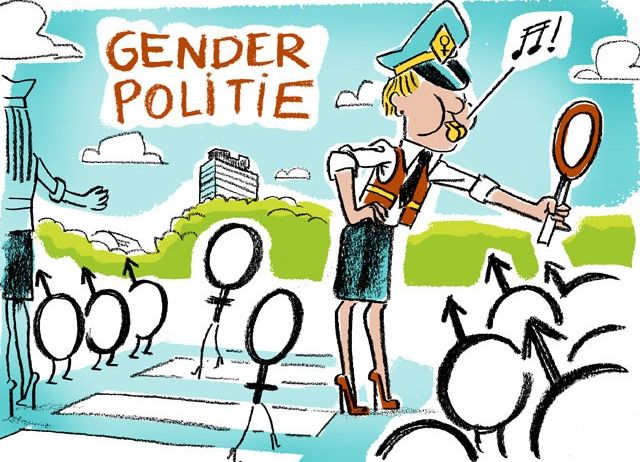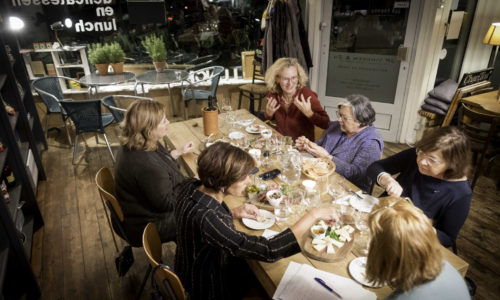Always a woman in your committee
-
 Illustratie: Roel Venderbosch
Illustratie: Roel Venderbosch
Gender equality does not just happen, says professor Lejla Batina, chair of the gender and diversity committee at the Faculty of Science. Her committee proposes some far-reaching measures to improve it. For example: showing students’ bias during evaluations.
No more hiring committees without women, no more PhD defences with only men in the opposition and new rules for pregnancy leave during tenure tracks. The chair of the gender and diversity committee (GenDi) at FNWI, professor Lejla Batina, named quite some measures to improve diversity at her faculty during the Diversity Day, last week. Batina became chair in September last year. ‘Recently, the university has achieved that when we want to hire new staff, there have to be at least two women in the committee’, she says. ‘One is just not enough, because it is easy to talk over the opinion of just one person. We also want to train all members, men and women, to reflect on their own bias.’
Earlier, GenDi proposed the ‘50K rule’, a premium of 50.000 euros for continued research during maternity leave. ‘When a female lecturer or professor gets pregnant, she loses a lot of research time and when she gets back, she is not immediately back on track with everything. The 50K can for instance be used to hire a postdoc who supports them during that period.’
Not the place
GenDi was founded in 2015. ‘Around that time, people figured out we had a problem’, says Batina. ‘About 10 percent of professors at FNWI were women. Everybody wants more women professors, but that was not going to happen out of itself. When female students come to open days and see no women, they feel like this was not the place for them.’ The committee meets once a month, and within the committee, there are work groups for several topics. No other faculty has a gender diversity officer like this. People can also come to them when they notice something in their daily work that needs to be addressed. Batina gives an example: ‘we recently were contacted by somebody who noticed that the official documents that were read by the chairman of a PhD defence, were written as if PhD candidates were all men.’ And things like this show in the actual defences. ‘I have been to quite some PhD defences where all the members of the opposition were men’, says Batina. ‘We want to arrange with the Beadle’s office that this will just not be approved beforehand.’
This might sound drastic, but Batina says that new rules are installed all the time. ‘For example, recently the rule was installed that there can be no co-authors in the reading committee. That sounds common sense, but they made a rule for it anyway. We can do that with all-men opposition committees as well.’
Promotions
Other important measures GenDi wants are regulations for women who get pregnant during their tenure track, and divided statistics for men and women in reports. ‘Research shows that women are structurally evaluated worse than their male colleagues’, says Batina. ‘So when you see a list of best teachers of the year, it will almost always be all men.’ But it can also affect promotions, for example. ‘When a woman has a year evaluation, the results of student surveys will be taken into account, as it is the case for men. When she gets pregnant and does less research in a certain year than her male colleagues, this is also something that can work against her. We want these things to be taken into account when the statistics are reviewed.’ Eventually, it would be best to just make students aware of their habit to evaluate female teachers worse, she says. ‘But that will take a lot of time and just confronting them will make it worse. Noticing it should be the first step.’



